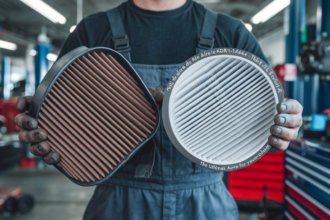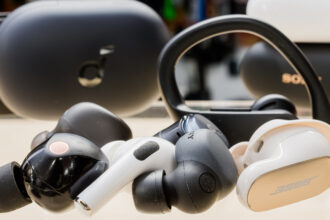Image from Unsplash
- The Evolution of Self-Care in Modern Culture
- The Role of Technology in Self-Care
- Minimalism and Simplification in Self-Care
- Mental Health as a Core Focus
- The Rise of Micro-Moments
- The Intersection of Self-Care and Sustainability
- Personalization and Data-Driven Wellness
- The Cultural Significance of Self-Care
- The Future of Lifestyle Culture
The concept of self-care has never been more relevant. What began as a niche wellness practice has evolved into a global movement that touches nearly every aspect of lifestyle culture. From meditation apps and biohacking devices to accessible beauty solutions like Polish Pops, which make salon-quality manicures available at home, self-care has become both personal and cultural. It is no longer just about skincare routines or occasional spa days; it is about integrating wellness into daily life in ways that reflect broader social and technological trends.
The Evolution of Self-Care in Modern Culture
Historically, self-care was viewed as a luxury, a day at the spa, a shopping splurge, or a long weekend retreat. Today, it has shifted into an everyday necessity. This change has been accelerated by modern stressors, ranging from digital overload to economic uncertainty. People are redefining what it means to look after themselves, focusing on practices that are sustainable, efficient, and aligned with their values.
The democratization of self-care has also been fueled by technology. Digital platforms allow people to access mindfulness tools, fitness classes, and skincare consultations from the comfort of their homes. This has blurred the line between personal wellness and mainstream lifestyle, embedding self-care into everyday routines rather than setting it apart as an indulgence.
The Role of Technology in Self-Care
One of the most significant forces shaping modern self-care is technology. Apps that track sleep cycles, devices that measure stress levels, and digital therapy platforms are just a few examples of how technology has expanded access to wellness resources. Wearable devices like smartwatches also make it possible to monitor heart rate, physical activity, and even stress management in real time.
A study published by the National Institutes of Health highlights how digital health interventions are helping people adopt healthier lifestyles. By combining data tracking with personalized feedback, technology is making it easier to adopt and sustain self-care practices. This integration of tech into wellness not only saves time but also empowers individuals to make informed decisions about their health.
Minimalism and Simplification in Self-Care
Another growing trend is minimalism in self-care routines. Rather than accumulating dozens of products or tools, many people are embracing simplified approaches. The focus is on quality over quantity, choosing fewer, multifunctional items that fit seamlessly into daily life. This mirrors a broader cultural shift toward sustainability and conscious consumption.
For example, instead of juggling multiple nail care products and salon appointments, individuals are opting for streamlined solutions like Polish Pops, which provide easy, at-home manicures without compromising on style or quality. This approach reflects how people want efficiency without sacrificing results.
Minimalist beauty and wellness habits are not about deprivation; they are about intentionality. The idea is to curate practices that are effective, manageable, and aligned with long-term well-being.
Mental Health as a Core Focus

Image from Unsplash
Self-care is no longer limited to physical appearance or fitness. Mental health has become central to how individuals view their overall wellness. Practices like meditation, journaling, and therapy are becoming normalized, shedding the stigma once associated with seeking help.
Cultural conversations around mental health, especially among younger generations, have reshaped lifestyle priorities. Today, self-care means checking in with emotional well-being as much as it does maintaining a skincare routine. Digital platforms that offer mindfulness exercises, therapy sessions, or even guided breathing techniques are giving people accessible ways to prioritize mental health daily.
The Rise of Micro-Moments
In the past, self-care often required carving out large blocks of time, something many people simply couldn’t manage consistently. Now, the focus has shifted toward micro-moments of care. These are short, intentional practices that can be done in just a few minutes, such as stretching at your desk, applying a quick manicure kit at home, or practicing deep breathing before a meeting.
Micro-moments reflect a broader understanding of self-care as a lifestyle rather than a special occasion. By integrating small, consistent practices into daily routines, individuals build resilience and balance without overwhelming themselves with elaborate rituals.
The Intersection of Self-Care and Sustainability
Modern consumers are increasingly mindful of the environmental impact of their choices, and this extends to self-care. Sustainable packaging, cruelty-free formulations, and eco-conscious practices are now standard expectations rather than added bonuses. People want products and practices that align with their values.
This is why many self-care innovations emphasize sustainability alongside convenience. Whether it’s reusable beauty tools, refillable skincare containers, or simplified at-home kits, the future of self-care reflects not only individual needs but also collective responsibility.
Personalization and Data-Driven Wellness
Another major trend shaping the future of self-care is personalization. Thanks to advances in data collection and artificial intelligence, individuals can now receive tailored recommendations for everything from diet to skincare. Personalized vitamin packs, AI-driven fitness apps, and genetic testing kits are all part of this movement.
This customization ensures that self-care is not a one-size-fits-all concept. Instead, it adapts to the unique needs of each person, making wellness more effective and sustainable. In the future, we can expect personalization to become the norm, with more services leveraging technology to deliver individualized care.
The Cultural Significance of Self-Care
Self-care has grown beyond individual practices to become a cultural phenomenon. It is tied to larger social movements, including body positivity, mental health awareness, and sustainability. It also intersects with fashion, media, and entertainment, shaping how people present themselves and interact with the world.
The popularity of wellness influencers, the rise of hashtags like #SelfCareSunday, and the integration of wellness into mainstream advertising all show how deeply embedded self-care has become in lifestyle culture. What was once a niche concern has now become a defining feature of modern identity.
The Future of Lifestyle Culture
As self-care continues to evolve, it will increasingly reflect broader cultural priorities: efficiency, sustainability, and inclusivity. Innovations like wearable health tech, AI-powered wellness platforms, and eco-friendly beauty solutions will shape the next era of self-care. At the same time, the cultural conversation will continue to normalize practices that support both physical and mental well-being.
Self-care in the future won’t be defined by excess but by balance. It will focus less on indulgence and more on integration, making wellness a natural and necessary part of everyday life. Whether it’s practicing mindfulness in micro-moments, embracing minimalist beauty solutions like Polish Pops, or leveraging data-driven personalization, the message is clear: the future of lifestyle culture is one where self-care is accessible, intentional, and deeply connected to how we live.
Modern self-care is not just a fleeting trend, it is a cultural shift that reflects changing values, technological advancements, and new expectations around well-being. By embracing innovation, sustainability, and personalization, individuals are creating routines that save time, reduce stress, and support holistic wellness. As these practices continue to evolve, self-care will remain a cornerstone of lifestyle culture, shaping not only how we look after ourselves but also how we define what it means to live well.

















